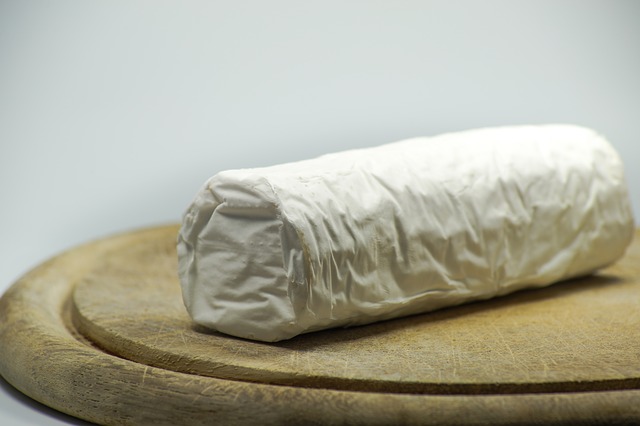As you might have guessed, goat’s cheese is produced from goat’s milk. It is a soft cheese that is made by coagulating the goat’s milk to form into the cheese. Many people wonder if this cheese is safe to eat during pregnancy because it is not made from traditional cow’s milk. Additionally, there is concern over whether soft cheeses are unsafe during pregnancy. Let’s find out “Can you eat goat’s cheese when pregnant?”.
The cheese being from a goat or being soft does not determine if it is unsafe for consumption during pregnancy. Rather, the concern with soft cheeses is whether they are unpasteurized. Unpasteurized means that the milk has not gone through a heating process (pasteurization) to kill off potentially harmful bacteria. Unpasteurized milk is also known as raw milk.
The big concern over unpasteurized cheese and pregnancy is a bacteria called listeria. Listeria can be found in raw milk and products like cheese made from raw milk. Symptoms include fever, diarrhea, stiff neck, muscle aches, confusion, vomiting, and weakness. According to the U.S. Department of Health & Human Services, “Pregnant women are approximately 20 times more likely than other healthy adults to get listeriosis. In pregnant women, it is typically a mild, flu-like illness. In the child, listeriosis can lead to miscarriage, stillbirth, or life-long health problems. ”
While the above information on listeria is scary, the majority of goat’s cheese sold in U.S. supermarkets is made from pasteurized milk. You likely won’t come across unpasteurized goat’s cheese unless you are looking hard for it. However, it is highly advised to review the ingredient label to confirm the use of pasteurized milk. The below ingredients in the picture is what you should be looking for.
Still not convinced? Below is what the FDA recommends not to eat during pregnancy to avoid listeria. While soft cheeses are listed, the key is that they must be pasteurized.
To Eat or Not to Eat?
Don’t eat:
- Hot dogs, deli meats, and luncheon meats – unless they’re reheated until steaming hot.
- Soft cheeses like Feta, Brie, and Camembert, “blue-veined cheeses,” or “queso blanco,” “queso fresco,” or Panela – unless they’re made with pasteurized milk. Make sure the label says, “made with pasteurized milk.”
- Refrigerated pâtés or meat spreads.
- Refrigerated smoked seafood – unless it’s in a cooked dish, such as a casserole. (Refrigerated smoked seafood, such as salmon, trout, whitefish, cod, tuna, or mackerel is most often labeled as “nova-style,” “lox,” “kippered,” “smoked,” or “jerky.” These types of fish are found in the refrigerator section or sold at deli counters of grocery stores and delicatessens.)
- Raw (unpasteurized) milk or foods that contain unpasteurized milk.
It’s okay to eat:
- Canned or shelf-stable (able to be stored unrefrigerated on the shelf) pâtés and meat spreads.
- Canned or shelf-stable smoked seafood.
- Pasteurized milk or foods that contain pasteurized milk.
Lastly, the chances of getting listeria while being pregnant are very slim. The CDC estimates that only 1,600 people in the United States get sick from Listeria germs per year. Only 14 percent of the listeria cases involve pregnancy. To put this into perspective, there were about 6.1 million U.S. pregnancy in 2010. I am not going to go further with the statistics or math, but you probably understand the unlikelihood of obtaining the illness.
Although listeria is not common, it is obviously important to cover all safety precautions by following your doctors recommended diet while pregnant. Please consult your doctor with concerns or questions about listeria and the foods you should avoid during pregnancy.



